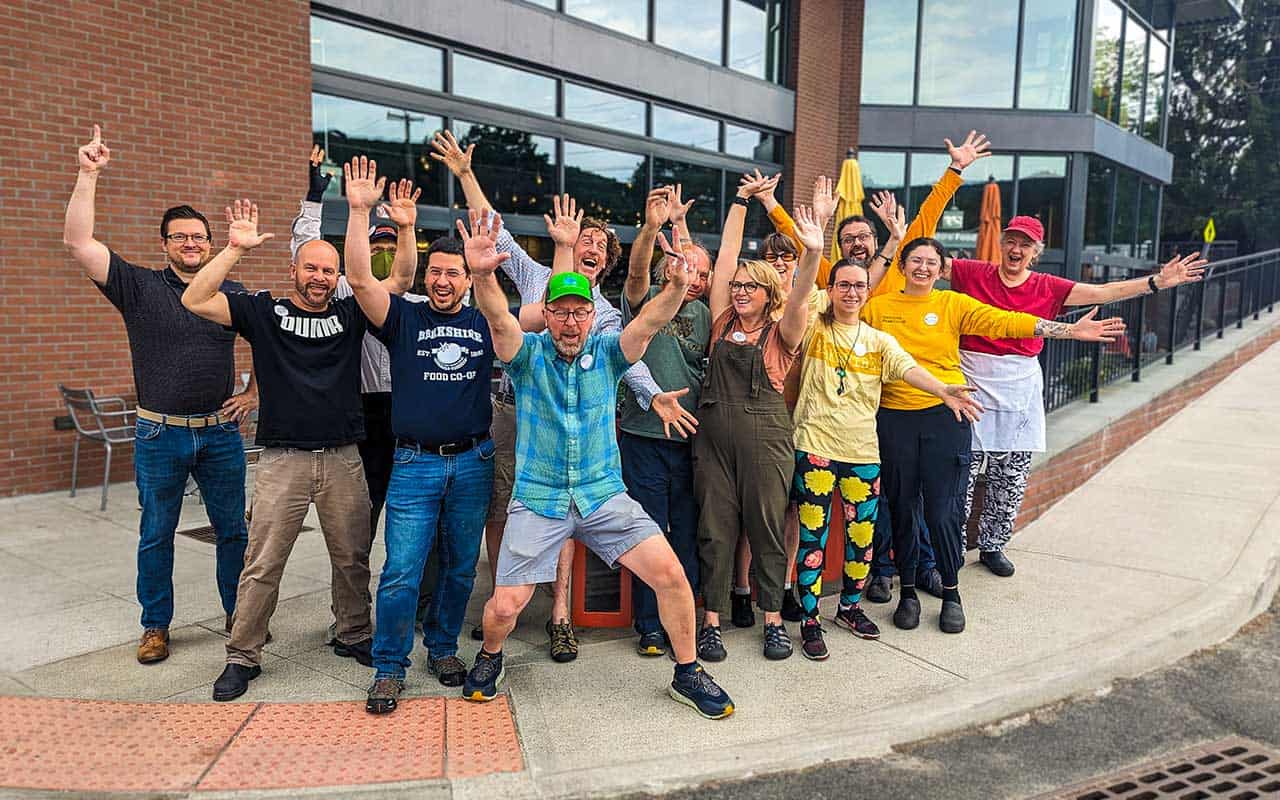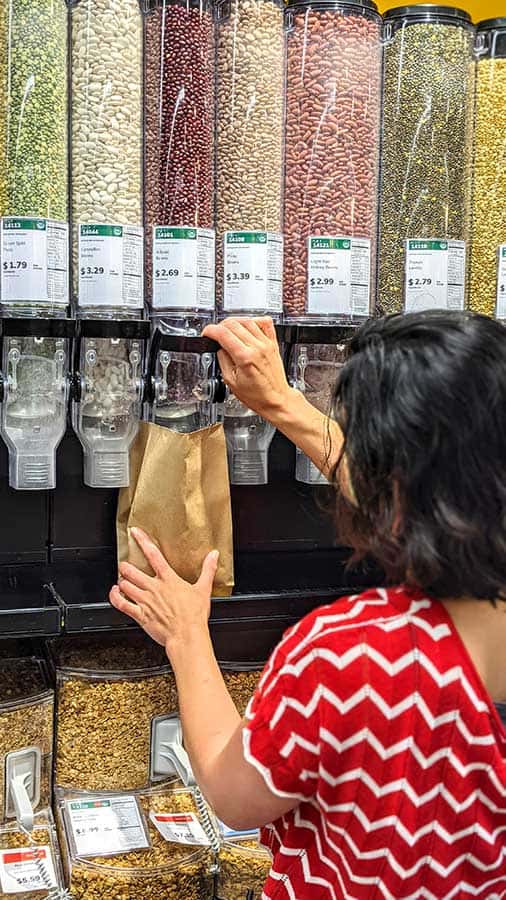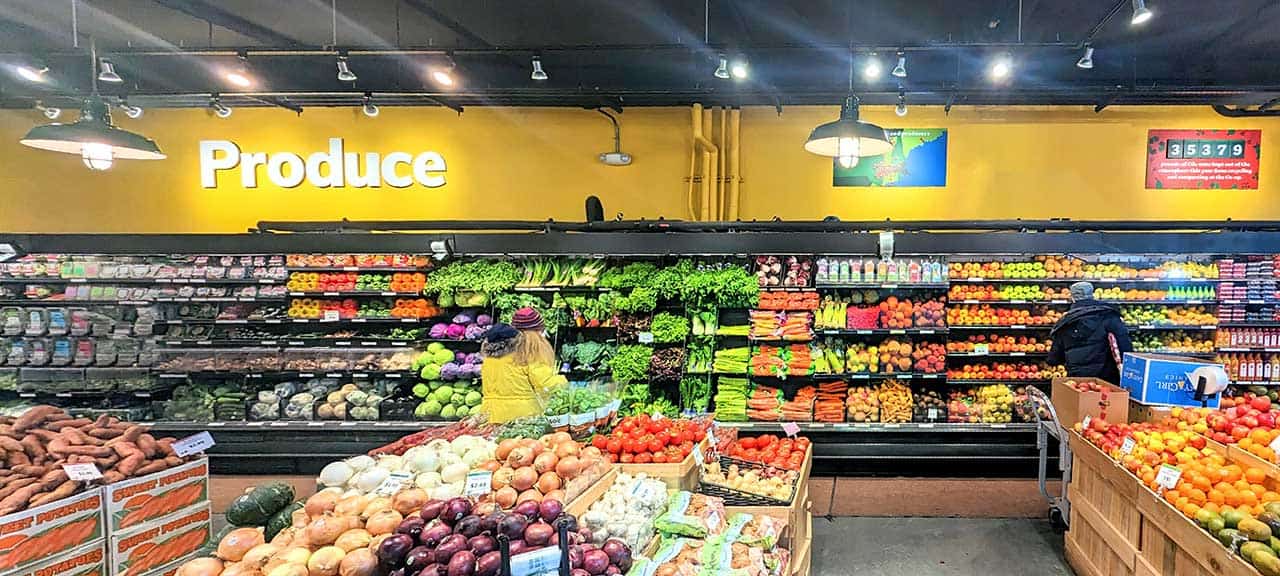Our Environment, Animal Tips & the Great Outdoors

Practicing Sustainability in Every Respect at the Berkshire Food Co-op
In another installment of our Plastic Free July features, we’re putting the spotlight on the sustainability work being done at the Berkshire Food Co-op in Great Barrington, MA. Their approach to both environmental awareness and the business model itself is deeply embedded in the needs and well-being of the community as a whole.
Their strategies aim not only to reduce plastic waste and waste more generally, but also to comprehensively connect patrons with sustainable solutions and rising local producers alike. I spoke with Berkshire Food Co-op Marketing Manager Devorah Sawyer about the store’s various ecological measures, as well as the intrinsically mindful nature of the co-op system.
The Co-op’s founding, as outlined on their website, was in November 1981, organized by a group of families in the community. Their goal since the Co-op’s inception has been to create access to “good food and sustainable products at reasonable prices through cooperative ownership and responsible business practices.” Their site describes that this overarching mission is entwined with concepts of thoughtful consumption, education, local economic prosperity, collaboration, health, and, of course, environmental stewardship.
 Numerous components of the Co-op experience seek to reduce plastic waste, including the store’s prepared foods. Here, reusable dishes and silverware are provided for the cafe, hot bar, salad bar, and soup choices, and iced drinks and smoothies are served in compostable cups. If you want to take prepared food with you, compostable boxes and utensils are available; Devorah acknowledges, though, that the Co-op is seeking out non-plastic alternatives when it comes to packaging their grab & go options. “Even at the Co-op, there are still things we can do better. That’s why we have the Owner-led Plastic Reduction Committee; they’re advising us on the best next steps to continue to show our community we care about our land and environment,” she says.
Numerous components of the Co-op experience seek to reduce plastic waste, including the store’s prepared foods. Here, reusable dishes and silverware are provided for the cafe, hot bar, salad bar, and soup choices, and iced drinks and smoothies are served in compostable cups. If you want to take prepared food with you, compostable boxes and utensils are available; Devorah acknowledges, though, that the Co-op is seeking out non-plastic alternatives when it comes to packaging their grab & go options. “Even at the Co-op, there are still things we can do better. That’s why we have the Owner-led Plastic Reduction Committee; they’re advising us on the best next steps to continue to show our community we care about our land and environment,” she says.
In terms of grocery shopping at the Co-op, they encourage the use of reusable bags and the reuse of boxes in which the store receives groceries. Customers can even receive discounts when buying bulk items if they fill up their own containers! Devorah points out that when determining what products to sell, the Co-op takes packaging into consideration, with a preference for paper or compostable materials.
Looking at waste more generally, the less aesthetically pleasing produce at the Co-op is integrated into the recipes from the co-op’s kitchen or donated to their local food pantry. The store also makes compost for local farmers out of leftover food, in addition to returning any reusable packaging like glass jars or egg cartons to vendors who reuse them as a part of their business model. By supporting businesses in the region, the Co-op promotes not only an environmental benefit but an economic one as well. Devorah says, “Supporting local farmers and producers is a huge piece of what we do, and that local impact includes smaller shipping costs/transportation distances, as well as simply keeping money in our local economy. We accept BerkShares as well, which encourages shopping locally.”
A truly extraordinary aspect of the Co-op’s business model was evidenced during the COVID-19 pandemic and the consumer anxiety that ensued at its height. Devorah explains, “While other big box stores or even regional chains were seeing interrupted supply chains and empty shelves, we were not. While customers at other stores were hoarding items and panicking, ours were not. Local and regional suppliers were still delivering, farmers were producing, and our shelves were well-stocked.”
This resilience in the face of uncertainty has underscored the Co-op’s sustainability in the truest sense of the word, as its operations carried on even amidst global struggles. Devorah notes that the close community connections afforded by their business structure allowed for swift adjustments at the time, such as implementing a curbside pick-up program, which is still offered today. She adds that the Co-op’s Owners and democratically elected Board of Directors have encouraged a loyal, representative atmosphere that supports a direct and effective response to customers’ needs. “Being a small local cooperative allows us to be in touch with our shoppers and community on an intimate level that is unachievable in other stores. […] We’ve been doing this since 1981, so we know we’re doing it right.”
The effect of these business methods has been pivotal for the local community, and the Co-op has served as a key resource for decades. Devorah states further that those businesses who are just starting out in the area are often given the opportunity to have their product sold at the Co-op as a crucial starting point: “There are a few local brands who’ve created quite a name for themselves [and] who started on our shelves first. There are even more who are in that first phase currently.”
Devorah emphasizes that simply being environmentally minded as a business is a vital part of the sustainability process. “Progress is important, and even if a store is not currently practicing sustainability, it’s important they show an effort in that direction.” Considering the significant role of the Co-op, she continues, “It’s important to show shoppers we’re more than a grocery store.”

Berkshire Food Co-op
34 Bridge Street
Great Barrington, MA 01230
(413) 528-9697
berkshire.coop
Hours: Every day, 8am-7pm

(Photos courtesy of the Berkshire Food Co-op)


